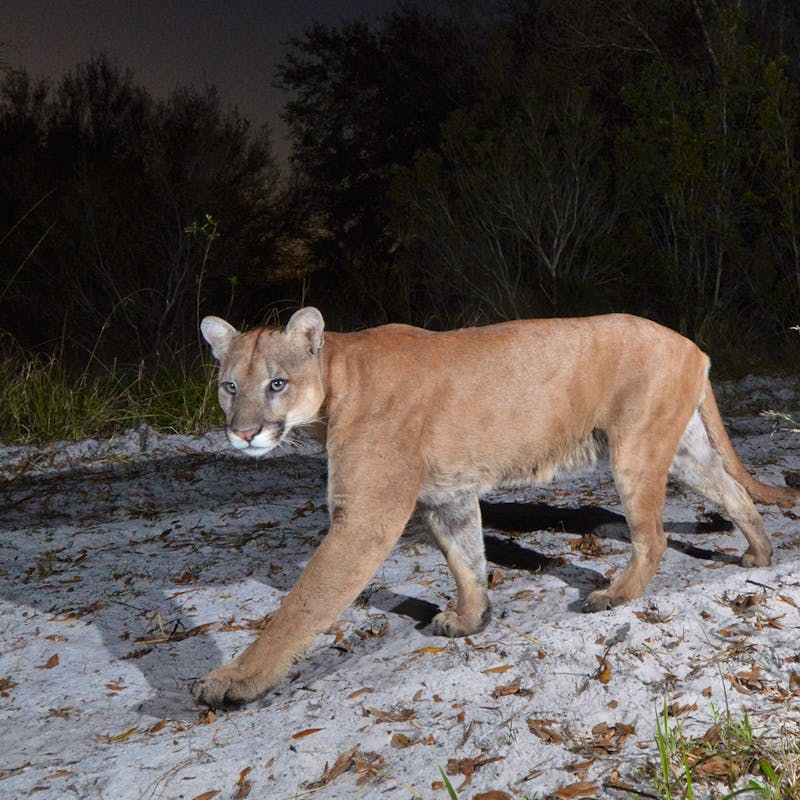Today, the Florida Fish and Wildlife Conservation Commission (FWC) announced that the agency has confirmed neurological damage in one panther and one bobcat through necropsy. Necropsy results of a second panther are pending - FWC euthanized this adult female Florida panther after finding the animal suffered from neurological symptoms exhibited by a number of other panthers since as early as 2017. Her two kittens are safe and being cared for and monitored in captivity.
Elizabeth Fleming, senior Florida representative at Defenders of Wildlife, issued this statement:
"These recent neurological episodes are yet another challenge facing the endangered Florida panther. We're hopeful that this panther's death has a silver lining, and that her necropsy results will shed light on why panthers are having difficulty walking and standing upright. Defenders of Wildlife will continue to work closely with state and federal agencies to help address this emerging and fatal threat in any way we can."
For over 75 years, Defenders of Wildlife has remained dedicated to protecting all native animals and plants in their natural communities. With a nationwide network of nearly 2.1 million members and supporters, Defenders of Wildlife is a leading advocate for innovative solutions to safeguard our wildlife for generations to come. To learn more, please visit https://defenders.org/newsroom or follow us on X @Defenders.
Media Contact
News

Fish and Wildlife Service Misguided in Rescinding Vital Strategic Growth Policy for the National Wildlife Refuge System

